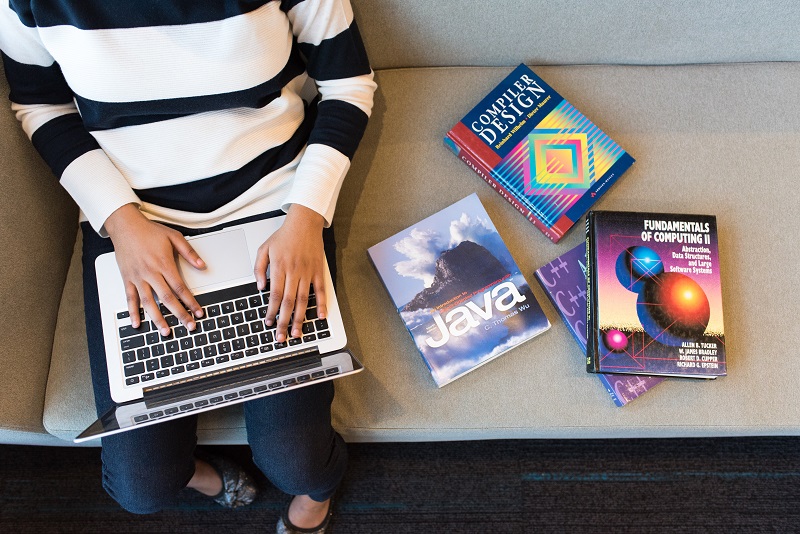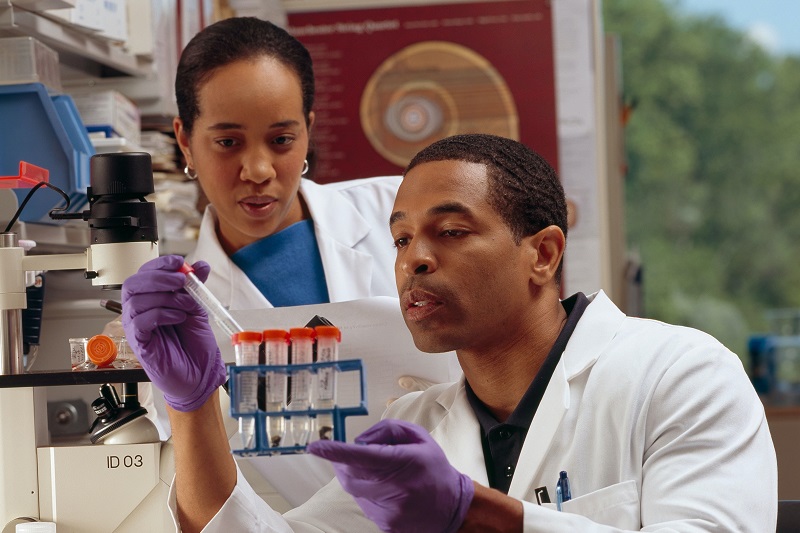Work-life balance
On this page, you will find signposting to University policies and external resources relevant to work-life balance, as well as some tips for researchers and their line managers that can help promoting a positive work-life balance in research.
We’ve focused information around three main themes, identified in 2022 by a working group from the PDC Representatives’ Network as the most important areas that may affect the work-life balance of research staff: working patterns, communications and taking family-related leave. Additional work was carried out in 2023 to adapt the information provided on the maternity leave intranet pages to the situation of externally-funded research staff.
Work-life balance is “the division of one's time and focus between working and family or leisure activities” (Oxford Languages Dictionary). A good or positive work-life balance means having working patterns that enable individuals to prioritise their health, family, social life and hobbies while managing their workload.
Each individual’s work-life balance is different and it is natural that the balance will temporarily change over time in response to specific circumstances.

Productivity: when you’re fulfilled at work and at home, you are better motivated and more efficient, so you get more done in less time.
Research quality: when you are well-rested and happy, you can better focus and are less likely to make mistakes.
Physical health: when you have time to sleep well, eat well, exercise and rest, you’re less likely to develop health issues.
Mental health: spending time away from work can help to reduce stress and avoid burnout. Taking regular breaks can also provide perspective from some of the setbacks experienced in research, helping you to find the resilience needed to continue with your work.
Enabling social and family life: spending time with family and friends is important for positive mental health and wellbeing and can help to build and maintain a support network. It can also be invaluable for those with caring responsibilities and/or settling into a new place, which is often the case for postdocs.
Environment and culture: maintaining a good work-life balance sets a healthy example to colleagues and students working around you, contributing to a positive working culture. By caring for yourself, you also protect others.
Promoting equality and diversity: creating a positive work-life balance culture ensures that all those who want to pursue a career in research feel enabled to do so, including those with caring responsibilities, physical or mental health issues (including hidden disabilities). A diverse research community brings an interesting diversity of perspectives and skills, which benefits the quality and impact of the research.
Working Patterns
Goal: Encourage healthy working patterns that enable leisure and social time while still achieving research objectives, notably by managing workloads and priorities and favouring effectiveness over long hours and presenteeism.
Research demands are not constant, and it is understood that flexibility is required when working in research, which may result in researchers occasionally working at times traditionally associated with ‘personal’ or ‘home’ time, for example to accommodate experimental time-points, working with partners in different time-zones, access equipment, meet specific deadlines etc.
-
Relevant official policy and guidance
How much to work:
You are expected to work on average “37 h per week, together with such additional hours as are required to complete and fulfil [your] duties.” (Contract Terms & Conditions for academic and Support Staff at Grade 6/AC1 and above; see on P&C ‘Pay and Conditions’ page).
You are entitled to 25 days of annual leave and 10 University closure days every year, in addition to the 9 University recognised public holidays; or pro-rata based on your contract’s start date or if you work part-time (Contract Terms & Conditions for academic and Support Staff at Grade 6/AC1 and above; similar but slightly different conditions apply to KTP Associates and ECIT staff; see on P&C ‘Pay and Conditions’ page and additional information on the P&C ‘Annual Leave’ page).
When to work:
“Normal working hours for the majority of staff and students fall within the period 7.00 am to 7.00 pm, Monday to Friday” (Working Out of Hours Health and Safety Policy and Guidance Note). Due to the nature of research work, you may on occasion need to work outside of these, which requires adhering to the Working Out of Hours Health and Safety Policy, which notably includes notifying Security and receiving line manager permission (often written). The number of people working out-of-hours being low, it is likely that they will also apply if you are working late or on week-ends. School / Centre / Directorate may have their own additional local lone working arrangements that staff should follow.
As mentioned before, research doesn’t always fit traditional 9 to 5 working patterns. Informal flexibility, such as variable start/end times, compensating work times between different periods, or occasionally working from home, can be facilitated by the Agile Working Policy and discussions with the PI/line manager. Possibilities will vary depending on the nature of your role, specific considerations within your team (each team has team standards), and the type of work being delivered (see P&C’s ‘Agile Working Toolkit’).
You are in charge of scheduling and organising your own daily work, and plan work over extended periods of time (Grade profiles from the P&C website).
Flexible working:
You can make an application to request to work part-time, which can only be refused if there is a clear business reason (See P&C ‘Flexible Working’ page). In contrary to Agile working, which is informal, Flexible working is a formal arrangement written in your contract.
Development:
You can use up to 10 days per year for professional/career development activities that are not directly related to your contracted work (See Career Development days policy on the PDC website or on the P&C ‘Planning your learning and development’ page).
Development and career plans are meant to be discussed and planed during the annual Personal Development Review (PDR) meeting between the PI and research staff, as well as regularly over the year (See Personal Development Review on the P&C website).
- Tips for research staff
- Plan and use your annual leave to rest, spend time with your family and friends and do things you love to do! Don’t let it go to waste
- Make the best of the agile working options available in your team to fit your life and personal preferences as well as maximise your productivity. For example, agree with your PI to adapt your start or end times to allow you to drop-off/pick-up your children or avoid traffic, or punctually work from home for tasks that benefit from a quiet environment, such as writing
- Plan your start and end times in advance, with prompts/ notifications to stop working in your calendar (e.g. plan weekly; all days don’t have to be the same)
- Carry out your work as much as possible within ‘traditional’ working hours and days (and adhere to relevant Health and Safety policies when not)
- Learn how to manage your time and prioritise, from your PI and colleagues, as well as with learning and development workshops and online resources (for examples, visit the self-leadership section of the ‘Leadership and vision’ page of the PDC website)
- Plan project-related personal development activities as well as others falling within your 10 career development days per year (teaching, committees etc.), being strategic on how you spend your time to get the best possible value to help with your next career step. Don’t try to do all at once and let go of activities you’ve already accumulated experience in to be able to focus on something else, spread development time reasonably across the length of your contract (your PI can help with that; talk about it at least during your PDR meeting)
- Discuss your personal circumstances and pressures, as well as any difficulties you have balancing your workload with your PI. They can help you re-prioritise
- Tips for managers
- Encourage the researchers you manage to take regular time off across the year so that they don’t lose part of their annual leave allocation
- Discuss and define team standards aligned with the Agile working policy, including core working hours, allowing flexible start and finish times, compensating work time between days/weeks, enabling staff to work from home when appropriate etc. and enable research staff in your group to use them in a way that benefits their life and work. See Agile working policy and toolkit on P&C’s intranet
- Encourage research staff to schedule their contracted work during working hours, limiting the time worked outside of them (including week-ends) to specific punctual situations (e.g. experimental time points, work with collaborators on a different time zone, public outreach event etc.)
- Be mindful of personal circumstances when planning meetings, especially when some research staff are working part-time, or to enable staff to drop-off/pick-up children
- Share good practice relevant to planning/ organising work and help the researchers working with you re-prioritise their tasks when needed, ensuring their workload is manageable
- Recognise the importance of career development and help them plan appropriate development activities strategically so that they gain new experience and skills relevant to their career plan (notably during their PDR, but not only). You can notably make them aware of or create some opportunities for them (reviewing, helping with grant proposal, teaching/ supervision…) and help them anticipate the time such activities will likely require
- Keep an eye for signs of distress or burnout, and regularly ask about any issue as this is not always obvious and visible (the Mental Health Toolkit for managers from Business in the Community and Action Mental Health can help you identify signs and provides signposting to help individuals who may be showing signs of mental ill-health)
Communications
Goal: Enable a break between work and personal time by avoiding intrusive communications, as well as promoting effectiveness while working by prioritising focus over the distractions brought by some communications.
-
Relevant official policy and guidance
During the Covid-19 pandemics, P&C developed guidance aimed at ‘Preventing an always on culture and meeting burnout’. Its principles remain valid beyond the pandemics, and has now been included in the Agile working toolkit:
- Tips for research staff
- Avoid as much as possible using personal communication means for work (e.g. using personal phone numbers, texts, WhatsApp, personal email address etc. for work; installing work communications Apps like email and Teams on personal devices, or, if you do, keep notifications off on your own devices)
- Avoid checking or answering work-related communications outside of your working hours, people will get used to it and likely aren’t expecting an answer anyway
- Choose not to be disturbed by communications when you are focusing on a piece of work (or attending a meeting) and when you are not working (including on your lunch break etc.) by keeping Email and Teams windows closed or reduced, as well as turning notifications off (note: you can use the ‘focus time’ function on Outlook/MS Teams and/or the ‘do not disturb’ status on MS Teams to momentarily block notifications)
- To help alleviating the pressure you may feel to check emails often and answer queries right away, ensure your correspondents are aware that you won’t be able to answer right away. For example, set an automatic ‘out-of-office' response in your email when you are off or unavailable (at conferences etc.), set meetings or working blocks in your Outlook calendar and/or use focus time/do not disturb as described above, as they visually show that you are unavailable
- Tips for managers
- Discuss and clarify your expectations with your team in terms of communications, thinking about when is ok to communicate, which means to use in which situation (including escalation in case of emergency, and clearly defining what an emergency is like), with efficiency and work-life balance in mind
- Encourage your staff not to get distracted by communications when focusing on a piece of work, showing that you value working effectively more than being available to answer queries at any time
- Refrain from contacting staff outside of their working hours (potentially use the ‘delay delivery’ function for emails)
- Avoid using personal communication means such as texts, calls and WhatsApp that use a personal number and device (these channels may be agreed as a team to be used in case of emergency or specific well-defined situations when other means aren’t available)
- Care for your own work-life balance and avoid answering queries when you are not working; this will help your team feel comfortable doing so too
Taking family-related leave
Goal: Enable individuals to have time and space to focus on their family, especially in relation to important life events, such as the arrival of a child.
-
Relevant official policy and guidance
The University has a range of policies covering different types of family-related leave, grouped under the umbrella ‘Work Life Balance Policies’. They include Maternity leave, Paternity leave, Adoptive leave, Parental leave, Shared parental leave, Dependent and bereavement leave, etc.
The Maternity leave intranet pages include specific information for academic and research staff and case studies relevant to to researchers on fixed-term contracts funded externally (added in 2023 through a collaboration between People and Culture, Queen’s Gender Initiative, and the PDC). For more information, watch the recording of the 'Postdoc Life: maternity leave for research staff' information session from November 2023.
Th UK Research Staff Association developed the UKRSA Family Leave leaflet, containing tips for researchers on fixed-term contracts taking maternity, paternity, adoption or parental leave and advice for institutions and employers.
- Tips for research staff
Please note that the tips below are more related to maternity leave, as it is usually the longest type of family-related leave relevant to research staff.
- Get familiar with the relevant policy applying to your situation and carefully discuss it with your manager, Health & Safety advisor if relevant (e.g. pregnant researchers working in a laboratory environment), and your HR Business partner if necessary
- Identify your options and specific circumstances in relation to your contract dates and the origin of your research funding (individual funders have different policies when it comes to maternity leave)
- If having a child, look into the ‘Parent and carers benefits’ provided by the University and plan childcare as early as possible
- You are not expected to work while on maternity leave, but there are options for you to keep in touch with your team; consider your options and choose what suits you personally
- Set an out-of-office automatic reply with an expected return date and sign-posting to relevant colleagues. To avoid a stressful time sorting emails when coming back after a long period of absence, you can use formulations like “I am off on family leave, planning to get back on DATE; I won’t be monitoring my inbox and will delete all messages upon my return. If important, please re-send after DATE or contact COLLEAGUE”)
- Tips for managers
- Celebrate good news with your research staff, being positive about it
- Help them navigate the University and Funders policies and understand their options
- Especially discuss and clarify their employment situation when they will come back (how long will they have left on their contracts etc.), discussing potential options for further employment if relevant
- Support their choices to stay in touch or not, decide when they would start their leave/come back (within the remit of the policy)
Where did this work come from?
Maintaining a positive work-life balance is important in research, but it can be tricky; postdocs had identified this as an area they needed more information about when we designed our institutional Researcher Development Concordat action plan for 2021-2024. Members of the PDC Representatives’ Network (postdocs and academics) joined a working group on the topic in 2022, and defined important areas to cover, the main policies to sign-post to, and some tips based on their experience. This work also received significant input from People & Culture, PROG and other relevant departments.



